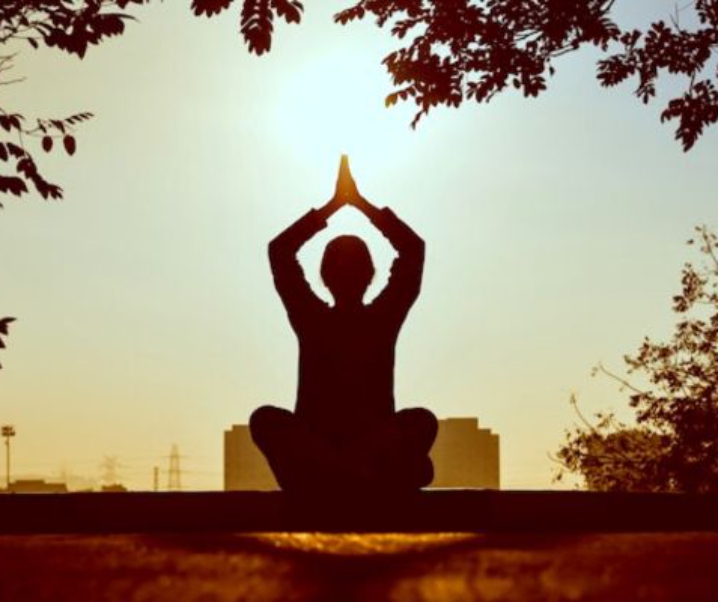Self-Care.For most of us, this phrase brings to mind scented candles, spa appointments, face masks, bubble baths, or maybe an indulgent shopping spree to “treat ourselves.” But here’s the twist: what if real self-care is not about buying more, but about choosing to buy less—and doing it thoughtfully?
In today’s consumer-driven world, the idea of shopping less might sound radical. Surrounded by consumer culture screaming at us from every billboard, website, and notification, buying has become almost automatic. We swipe, tap, and check out without a second thought. After all, retail therapy has long been marketed as a quick fix to make us feel good.
But the aftermath—cluttered homes, drained bank accounts, and lingering guilt—leaves us feeling anything but cared for. More and more people are realizing that the short-lived rush of a new purchase doesn’t necessarily bring lasting happiness. Instead, intentional consumption—carefully choosing what we allow into our lives—is emerging as one of the most profound forms of self-care.
This is where the art of thoughtful buying comes in. It’s not about denying ourselves or living with scarcity. It’s about creating space, balance, and intention in our lives. And surprisingly, that’s one of the most powerful forms of self-care we can practice. Let’s explore why buying less, and doing it mindfully, is not just good for your wallet or the planet, but also deeply nourishing for your mind, emotions, and overall well-being.
The greatest wealth is to live content with little.
– Plato

The Myth of “Retail Therapy”
We’ve all heard the phrase: “I deserve this.” After a long week, a breakup, or a bad day at work, retail therapy feels like a quick fix. For a moment, swiping the card or clicking “Buy Now” gives us a dopamine rush.
But here’s the catch: the thrill fades quickly. The new shoes end up in the corner, the gadget in a drawer, and the guilt of overspending creeps in. Instead of soothing us, impulsive buying often adds another layer of stress.
Think back to the last time you cleaned your closet or organized your home. Did you stumble upon things you forgot you even owned? A dress with the tag still on. A gadget you bought on impulse but never used. Shoes that looked perfect in the store but never quite fit. Each of these items carries a hidden weight. They take up physical space, yes—but they also take up mental and emotional space. Every time you see those unused items, there’s a subtle pang of guilt, regret, or decision fatigue: Should I wear this? Should I donate it? Why did I even buy it?
When our surroundings are cluttered, our minds often mirror that chaos. Buying less, thoughtfully, is like lifting a fog. It creates clarity and calm. You know what you own, you value it, and it serves a purpose in your life. That simplicity itself is a form of everyday self-care.

Buying Less = Creating Space for Yourself
Our homes mirror our minds. A cluttered room often equals a cluttered headspace. When we buy less, we free ourselves from unnecessary clutter—physical and mental.
Imagine walking into a room where every item has a purpose, where the things around you spark joy or serve a clear need. That sense of calm, clarity, and freedom is what buying thoughtfully gives us. Minimalism isn’t about owning only 30 items or living in a bare apartment. It’s about curating your life so that everything around you has meaning. And that’s deeply caring for yourself.
Financial Wellness is Emotional Wellness
Self-care isn’t just bubble baths—it’s also paying your bills on time without anxiety. Overspending may offer a temporary high, but it creates long-term stress. Buying thoughtfully means protecting your financial health.
Every time you resist an impulsive purchase, you’re giving your future self the gift of security. You’re saying: I care enough about myself to prioritize peace of mind over momentary pleasure. That’s self-care in its truest form.

Redefining What “Care” Means
Self-care has often been equated with indulgence. And while there’s nothing wrong with treating yourself occasionally, real care goes deeper. It’s about making choices that align with your values, respect your time, and nurture your long-term well-being.
Buying thoughtfully shifts the question from “What do I want right now?” to “What will truly serve me?” That small shift changes everything. Instead of rushing to fill a void with an impulsive purchase, you pause. You ask yourself:
- Do I really need this?
- Does it add value to my life?
- Am I buying it because I feel pressured, bored, or stressed?
- Could I borrow, reuse, or repurpose something instead?
This reflective process itself is an act of care. It honors your time, your money, your emotional health, and even your relationships.
Freedom in Less
There’s an undeniable liberation in owning less. When you don’t feel the constant urge to shop or chase the next trend, you reclaim time, energy, and mental peace.
Imagine:
- Less clutter to manage.
- Fewer decisions to make about what to wear or use.
- More financial freedom to invest in experiences rather than things.
- More space, literally and figuratively, to breathe.
This is why many people who embrace mindful consumption often describe feeling lighter, calmer, and more focused. They’re not deprived—they’re free.

The Ripple Effect of Thoughtful Buying
Buying less is not just about you—it’s also about the bigger picture. Every thoughtful choice you make creates ripples.
- For the environment: Less demand means fewer resources extracted, less packaging waste, and fewer items ending up in landfills.
- For communities: Supporting ethical, local, or sustainable businesses nurtures livelihoods and fair practices.
- For loved ones: Modeling mindful consumption teaches your children, friends, and family the value of balance over excess.
So, when you buy less, you’re not just practicing self-care—you’re also practicing planet-care and community-care. That’s the kind of holistic well-being that transcends trends.
Self-care is often framed as individual, but the truth is, we’re interconnected. The choices we make ripple outward. Buying less reduces waste, lowers our carbon footprint, and contributes to a healthier planet. Here’s the bonus: living in alignment with your values—such as sustainability—nurtures your mental well-being too. When your actions match your beliefs, you feel grounded, authentic, and at peace.
And when you practice buying less thoughtfully, you inspire others. Friends notice when you choose quality over quantity, when your home feels calm instead of cluttered, and when you give meaningful gifts instead of random ones. This ripple effect is contagious. Imagine if more of us embraced this shift—how much less stress, waste, and guilt we’d collectively carry.
Practical Ways to Start Buying Less Thoughtfully
If the idea resonates with you but feels overwhelming, here are a few small ways to begin:
- Pause Before Buying – Wait 24 hours before making non-essential purchases. Often, the urge passes.
- Curate a Wishlist – Instead of impulse buying, create a wishlist (like on the TIWIW app). This helps you think through what you truly value.
- One In, One Out – For every new item you buy, let go of one. This keeps your space balanced.
- Invest in Quality – Choose items that last, even if they cost more upfront. Long-lasting purchases reduce waste and save money in the long run.
- Celebrate What You Have – Practice gratitude by appreciating and using what you already own.
Self-care has been commercialized into buying more products, but true self-care often means simplifying, slowing down, and choosing wisely. Buying less—thoughtfully—is not deprivation. It’s liberation. It’s giving yourself the gift of clarity, calm, and connection. It’s freeing your finances, lightening your home, and nurturing the planet. And that’s what makes thoughtful consumption the ultimate form of self-care: it nurtures not just your present, but your future, your community, and your planet.
And perhaps most importantly—it’s a reminder that you are enough, without the constant chase for more.



















What do you think?